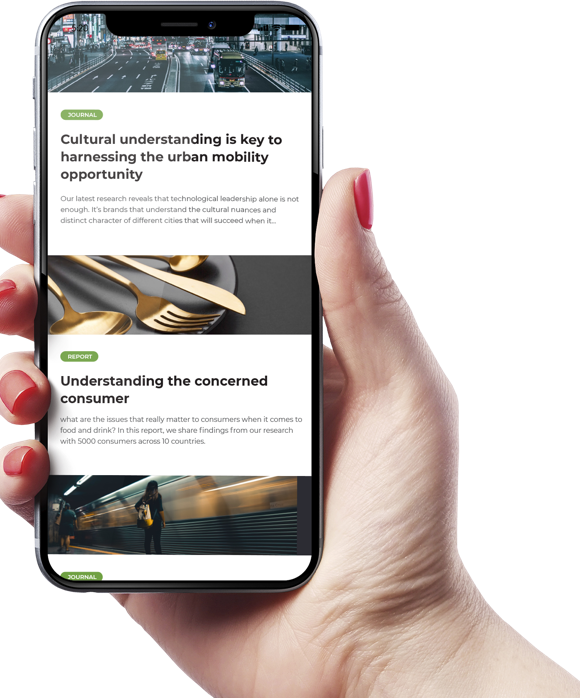From understanding audience segmentation to harnessing the power of viral marketing, market research is often at the start and heart of every successful marketing campaign. Miss this crucial step, and you risk alienating your audience and wasting your marketing investment.
Here are just some market research terms and methods from A through to Z.
A – Analytical Framework
An analytical framework is a structured approach or model used in market research to organise, analyse, and interpret data. It provides researchers with a systematic way to examine relationships, patterns, and trends within the data, allowing for meaningful insights and informed decision-making. The analytical framework is a guiding tool, ensuring the research process remains focused and coherent, ultimately leading to valuable and actionable business findings.
B – Brand Awareness
Brand awareness measures how familiar consumers are with a particular brand. It is a vital metric in marketing as it indicates the level of recognition and recall a brand holds among its target audience. Companies invest in various marketing initiatives, such as advertising, social media presence, and public relations, to boost brand awareness and enhance their market position. Market research is pivotal in brand awareness by providing valuable insights into consumer perceptions and awareness levels. It enables companies to identify gaps in brand recognition and tailor their marketing strategies to effectively engage and resonate with their target audience, ultimately bolstering brand awareness and solidifying their market position.
C – Competitive Analysis
Competitive analysis involves assessing the strengths and weaknesses of direct and indirect competitors in a market. By examining competitors’ products, pricing, marketing strategies, and overall market share, businesses can gain valuable insights to refine their approach, identify market gaps, and make informed decisions that give them a competitive edge.
D – Data Analytics
Data analytics refers to the process of analysing and interpreting vast data sets to identify patterns, trends, and insights relevant to marketing efforts. Market researchers use advanced analytical tools to extract meaningful information from data, enabling businesses to optimise marketing campaigns, identify customer preferences, and make data-driven decisions.
E – Ethnographic Research
Ethnographic research involves observing and studying the behaviour of consumers in their natural environments to gain a deeper understanding of their needs, motivations, and experiences. This qualitative research method allows marketers to immerse themselves in the consumers’ world, providing unique insights that traditional surveys or interviews may not capture.
F – Focus Group
A focus group is a small, diverse group of individuals brought together to discuss and provide feedback on a specific product, service, or marketing campaign. Moderated by a skilled facilitator, focus groups offer companies valuable qualitative data and opinions directly from their target audience, helping them assess consumer reactions and refine their offerings.
G – Geotargeting
Geotargeting is a marketing strategy that delivers tailored content or advertisements to specific geographic locations. By utilising location data from smartphones or IP addresses, businesses can optimise their marketing efforts by customising messages to suit the preferences and needs of different regions or localities.
H – Hypothesis Testing
Hypothesis testing is a statistical technique used in market research to validate or reject assumptions about consumer behaviour or market trends. By conducting experiments and analysing data, researchers can determine the significance of certain variables and draw reliable conclusions, aiding marketers in making well-informed decisions.
I – In-Depth Interviews
In-depth interviews are a qualitative market research method involving one-on-one, open-ended interviews with respondents to gain deeper insights into their thoughts, opinions, and experiences. Researchers use this concept to delve into participants’ underlying motivations, attitudes, and emotions, providing rich and detailed information that may not be easily captured through other research techniques. In-depth interviews offer a valuable means of understanding consumer behaviour, preferences, and decision-making processes, helping businesses make more informed marketing strategies and product development decisions.
J – Joint Ventures
Joint ventures are collaborative business arrangements where two or more companies combine their resources and expertise to achieve mutual growth and market expansion. Market research is pivotal in joint ventures by providing valuable data, industry insights, and consumer behaviour trends that contribute to informed decision-making and strategic planning. Through research collaboration, companies can identify complementary strengths and market gaps, enabling them to develop innovative products or services that resonate with their target audience. Market research also helps evaluate potential partners, assess market demand, and understand consumer preferences, ensuring the joint venture is well-aligned with market needs.
K – Key Performance Indicators (KPIs)
Key Performance Indicators are specific metrics used to measure the success and progress of marketing campaigns and business objectives. Examples of marketing-related KPIs include conversion rates, customer acquisition costs, customer retention rates, and return on investment (ROI).
L – Longitudinal Studies
Longitudinal studies are a market research methodology involving continuous observation and data collection from the same participants over an extended period. This powerful technique allows researchers to track changes, trends, and behaviours over time. By following subjects throughout their journeys, market researchers gain a deeper understanding of consumer preferences, evolving needs, and the impact of external factors on decision-making. Longitudinal studies offer unique insights into the dynamic nature of markets, helping businesses make informed predictions, identify patterns, and adapt their strategies to stay ahead in the ever-changing landscape of consumer behaviour.
M – Market Segmentation
Market segmentation is the process of dividing a broad target market into smaller, homogeneous groups based on shared characteristics. By identifying distinct segments, businesses can create focused marketing strategies that cater to the unique needs and preferences of each segment, leading to more effective marketing efforts.
N – Neuromarketing
Neuromarketing combines neuroscience and marketing to understand consumer behaviour at a deeper, subconscious level. By studying brain activity and physiological responses, marketers can gain insights into how consumers process information and make purchasing decisions, leading to more persuasive and impactful marketing tactics.
O – Online Surveys
Online surveys are a popular method of collecting quantitative and qualitative data from a large number of respondents. Conducted through web-based platforms, online surveys provide valuable insights into consumer opinions, preferences, and satisfaction levels, helping businesses refine their marketing strategies and improve products or services.
P – Product Testing
Product testing involves the rigorous evaluation of a product’s performance, quality, and usability through controlled experiments and user feedback. Market researchers conduct product testing to identify strengths and weaknesses, ensuring that the final offering meets customer expectations and delivers an exceptional user experience.
Q – Qualitative Research
Qualitative research is a non-statistical method that explores consumer attitudes, opinions, and behaviours through in-depth interviews, focus groups, and observations. This approach helps marketers better understand consumers’ motivations and emotions, providing valuable context for decision-making.
R – Regression Analysis
Regression analysis is a statistical technique used in market research to examine the relationship between a dependent variable and one or more independent variables. Researchers can identify patterns, correlations, and predict future outcomes by analysing the data, enabling businesses to make data-driven decisions and optimise their marketing strategies.
S – Sampling
Sampling is the process of selecting a subset of individuals, products, or data points from a larger population to conduct market research. It is not always feasible or practical to study the entire population, so researchers use sampling to gather representative data that can be analysed to draw conclusions about the entire group. Proper sampling techniques ensure that the data collected is unbiased and reflects the target population, allowing businesses to make accurate inferences and insights from the research findings.
T – Target Market
The target market refers to the specific group of consumers or businesses that a company aims to serve with its products or services. Identifying and understanding the characteristics and preferences of the target market is essential for creating marketing messages and strategies that resonate with the intended audience.
U – User Experience (UX)
User Experience encompasses a customer’s overall experience and satisfaction when interacting with a product, service, or website. Market researchers use UX testing and feedback to identify pain points and areas of improvement, leading to enhanced customer satisfaction and loyalty.
V – Validity
Validity is a critical concept in market research that refers to the extent to which a study or research instrument accurately measures what it intends to measure. In other words, it assesses the degree to which the research findings and conclusions are reliable and trustworthy. Market researchers strive to ensure the validity of their research methods and data collection processes to eliminate any potential biases or errors that could compromise the accuracy and integrity of the results. Validity is crucial in maintaining the credibility and usefulness of market research findings for making informed business decisions.
W – Weighting
Weighting is a statistical technique used in market research to adjust the significance or representation of certain data points within a sample. Some groups or segments may be underrepresented or overrepresented when analysing survey responses or other data. Weighting helps balance the data to accurately reflect the target population’s characteristics, ensuring that the results are more representative and reliable. By assigning appropriate weights to each data point, market researchers can reduce bias and draw more accurate conclusions, ultimately enhancing the validity and relevance of the research findings.
X – X-Variable
In statistical analysis, an “X-variable” is another term for an independent variable. In market research, independent variables are factors that researchers manipulate or examine to understand their impact on the dependent variable or outcome of interest. For instance, in a study analysing consumer behaviour, the price of a product could be an X-variable, as researchers may want to observe how it affects consumers’ purchase decisions.
Y – Yield Management
Yield management is a pricing strategy commonly used in industries such as hospitality and transportation. Businesses can optimise revenue and maximise profits by dynamically adjusting prices based on demand and other market factors. Market research is crucial in yield management by providing essential insights into customer preferences, historical demand patterns, and competitor pricing strategies.
Z – Zero Moment of Truth (ZMOT)
The Zero Moment of Truth refers to the moment when a consumer starts researching a product or service online before making a purchase decision. Market researchers study this critical stage to understand consumer behaviour and ensure that businesses have a solid online presence and positive reviews to influence buying decisions.
Take the stress out of market research and leave the A to Zs to us! When you partner with Kadence International, you don’t need to be an expert in market research. With over 30 years of international market research expertise and 10 offices worldwide, we are here to simplify the process. Let our seasoned professionals guide you in choosing the most suitable approach, enabling you to make well-informed decisions for your business. Call us today to discuss your next research project and unlock the insights to drive results!
Get regular insights
Keep up to date with the latest insights from our research as well as all our company news in our free monthly newsletter.



 Senior Marketing Executive
Senior Marketing Executive Sales & Marketing
Sales & Marketing General Manager PR -Internal Communications & Government Affairs
General Manager PR -Internal Communications & Government Affairs Vital Strategies
Vital Strategies
 Customer Intelligence Director
Customer Intelligence Director